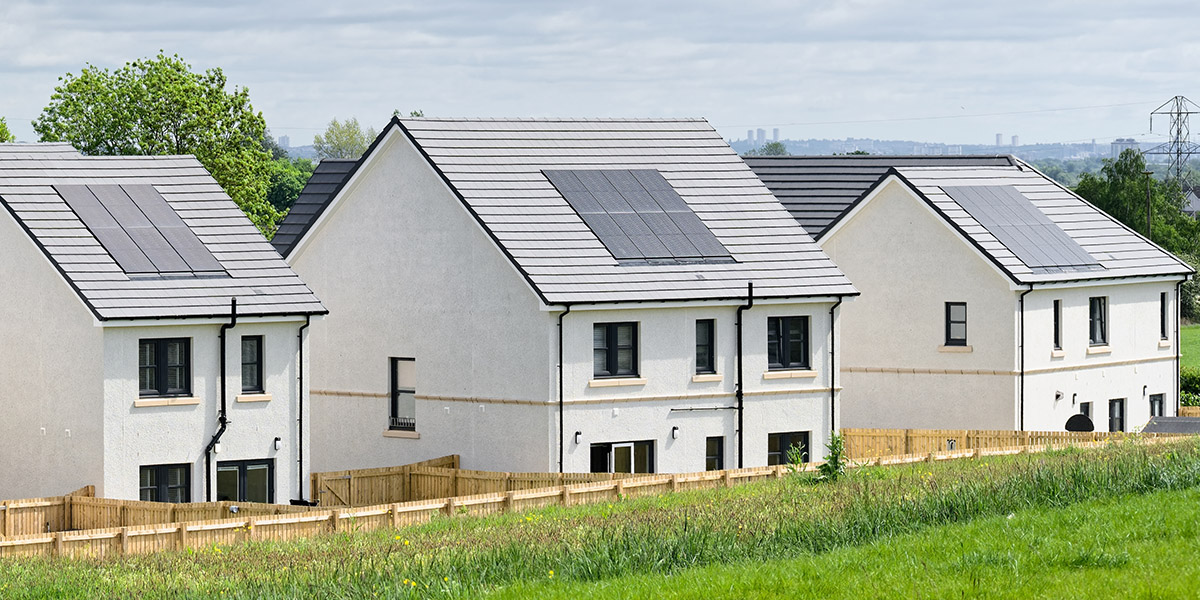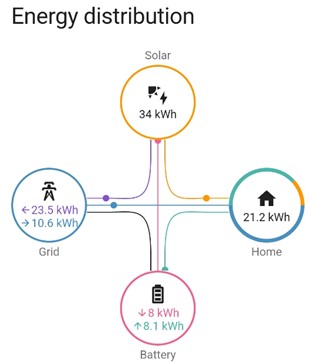What Scotland's homeowners need to know about renewable energy
Key Takeaways
- A well-designed solar and battery system can cut annual electricity bills by up to 80%, sometimes making summer months free.
- The payback period for a proper system is often 8 to 10 years, and returns improve if electricity prices rise.
- Even on cloudy days, modern solar panels can generate electricity thanks to diffuse light-capture technology.
- Many homeowners delay adoption due to myths or misinformation, about 90% of eligible homes in the UK have not installed solar.
- It’s critical to use certified contractors (e.g. MCS certification), get correct specifications, and avoid exaggerated sales pitches.
Over the coming weeks, Eddie Curran & Andrew Murphy, founders of leading Scottish renewable energy company GreenFox Energy, will help guide ESPC customers through the ins and outs and the do’s and don’ts of renewable energy for the home.

Solar for Savvy Scots
There are 13 million owner occupied houses in the UK and almost all of them can enjoy financial benefit and deliver environmental gains by utilising solar power, provided they receive the right advice and support.
A correctly specified and professionally installed solar energy system and battery can generate significant savings for almost every homeowner in Scotland - producing as much as an 80% reduction in annual electricity bills, with summer months entirely bill free!
In most cases, the up-front cost of purchasing and installing the system will pay-back in 8 - 10 years, faster if electricity prices rise above the historic trend. It’s worth noting that this calculation ignores other - difficult to measure - benefits such as solar’s potential to increase the value of a property and the benefits of energy independence given concerns over continuity of UK power supplies. Generally our advice is to be suspicious of solar salesmen suggesting radically better financial outcomes than the ones we’ve described above but, equally, please ignore those who say that solar ‘can’t work in Scotland’ or ‘never pays back’ as this simply isn’t true.
Among house-owners, only the very few people who live in the most strictly governed conservation areas, a listed building or whose property is almost entirely shaded from the sun are unable to take profitable advantage of this free power source.
Given that, it’s slightly surprising that approximately 90% (around 12 million) of the UK’s eligible homeowners haven’t yet ‘seen the light’ and installed solar panels, and our adoption rate significantly lags countries with similar climates and economies, like Netherlands, Belgium, Germany, Denmark and Austria.
At GreenFox Energy, we were so perplexed by the UK’s ‘solar lag’ that we commissioned a national survey to better understand the factors at play and the perceived barriers to solar adoption. 4000 responses later*, the conclusion is clear: homeowners are needlessly missing out on significant reductions in their energy bills primarily because of an information deficit - too many people have either accepted negative myths about solar energy or lack sufficient reliable information to feel confident in their ability to make good decisions about it and so, while the opportunity of solar power nags at them every so often, they’re stuck in limbo; attracted by the concept, but worried about making a costly mistake.
We started GreenFox because we wanted to change that and could see that the situation was compounded by the lack of solar energy companies capable of inspiring robust confidence in customers. We found that too many of those passing themselves off as solar engineers were unregistered (you should always insist on proof of MCS Certification) gave poor advice and left customers with incorrectly specified, poorly performing and undocumented systems (which - among other things - means you can’t sell your excess power back to the grid).
Over the coming weeks we’ll talk straight and aim to bust the myths that make people uncertain about home renewables. Not every solution is right for every home but, as we do every day in our business, we want to give homeowners the confidence to embrace solar power in a way that works for you - whether in your current home or your next one. Equally, through upgrading systems and providing subscription care plans, we help many homeowners who already have solar get much more out of their systems than they currently do. Later in the series of articles, we’ll also explain our view on Heat Pumps - a complicated and somewhat vexed issue, where some care is definitely required!
In this initial article our focus is simply to introduce the topic and ‘bust’ the number one ‘renewables myth’, which is that Scotland isn’t sunny enough to make solar energy a worthwhile investment.
Solar panels can generate electricity even on cloudy days. Advancements in solar technology have led to more efficient panels that can capture diffuse sunlight, making them perfectly suitable for the Scottish climate. But let’s get specific.
This graphic (taken from the GreenFox App linked to Eddie’s Solis solar energy system) shows that, in his Linlithgow home, on Monday 12th June 2023, solar generated 50% more power than the household consumed in the entire 24-hour period.

In the circle labelled ‘Grid’, you can see that Eddie drew 10.6 units (kWh) of electricity - on a cheap overnight tariff - to run overnight appliances and to charge his storage battery, a tactic we recommend to all GreenFox customers. During the day, when the sun was up and solar energy was being harvested, Eddie’s solar system more than met his household electricity demand (generating 34kWh and using only 21.2) and thus - combined with emptying his battery - he was able to export 23.5 units back to the ‘Grid’ (for an income of £2.82) whilst still having time to top up the battery once more with 8kWh of free power to use later or to divert into the family’s electric vehicle.
This pattern isn’t unusual for the summer months, but perhaps more surprising is that - even in February - the combination of solar energy and a battery enabled Eddie to make a 43% reduction in his grid electricity consumption. Even better, because his battery enabled him to draw cheap overnight power using a ‘Time of Use’ tariff, overall this translated into a 74% reduction in his electricity bill vs the same month in the prior year.
GreenFox provides customers who subscribe to its Vixen Care & Maintenance Plan with exactly this type of system performance data so they can track and maximise the value of their investment in solar energy. We also offer specialist tariff advice to help customers navigate the often-confusing world of energy pricing.
Next time: The secret to solar success: top hints and tips when considering installing solar.